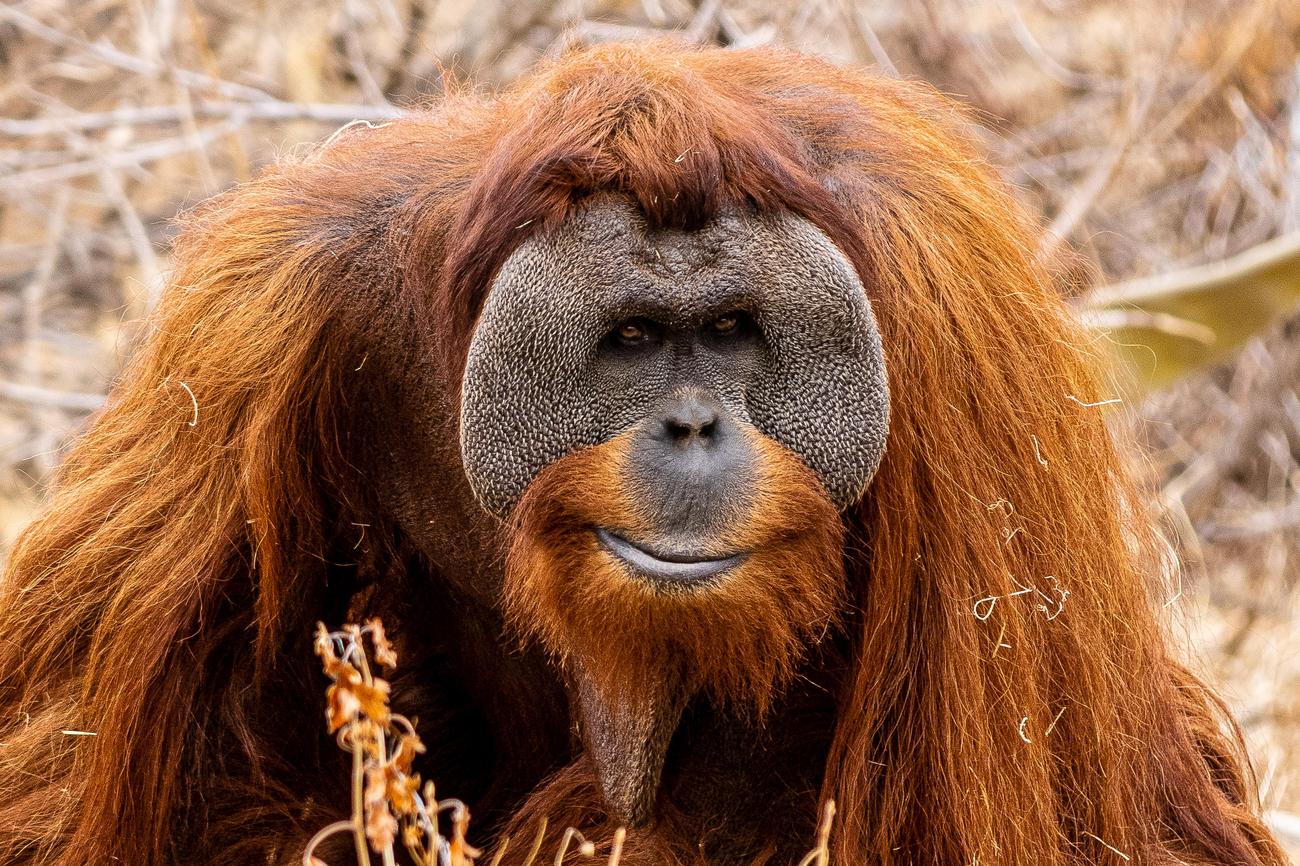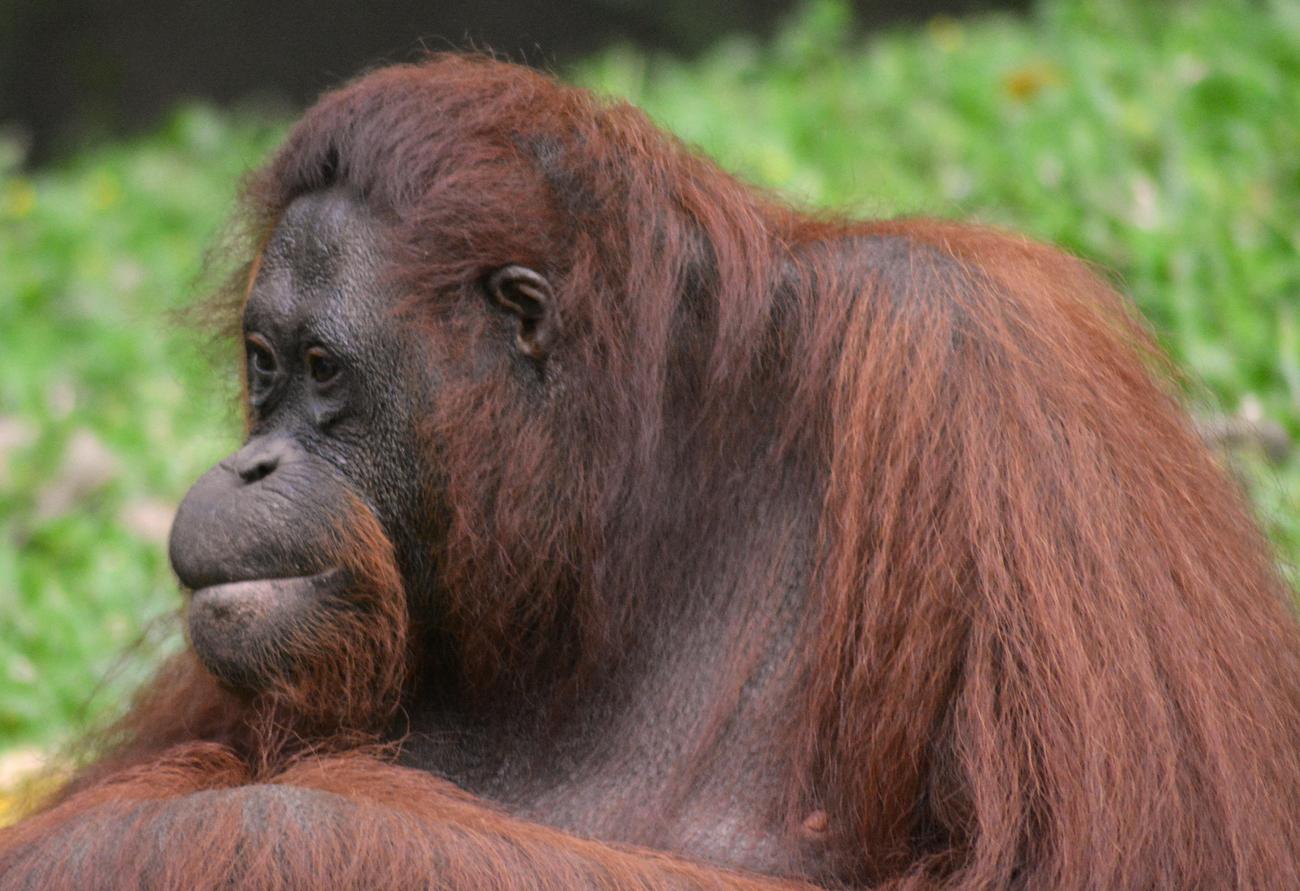Deep in the lush rainforests of Sumatra, a critically endangered species teeters on the edge of extinction. With their striking red fur and soulful eyes, the Sumatran orangutans have captivated the world with their charm and intelligence. But behind their gentle demeanor hides a heartbreaking tale of habitat destruction and poaching. In this article, we delve into the lives of these magnificent creatures, exploring their unique behaviors, the threats they face, and the urgent need for concerted efforts to save them from the brink. Prepare to embark on a journey through the orangutans’ world, and discover why their survival is not just crucial for themselves, but for the entire ecosystem they call home.

Sumatran Orangutans: A Majestic Species on the Brink of Extinction
In the lush rainforests of Sumatra, Indonesia, hides a majestic species that is fighting for its very survival – Sumatran orangutans. These critically endangered primates are incredibly unique, and their conservation is crucial to the balance of rainforest ecosystems and our planet as a whole.
Sumatran orangutans are known for their remarkable climbing abilities and high level of intelligence. With lanky arms and an impressive wingspan, they effortlessly navigate the towering trees where they spend most of their lives. These noble creatures are the masters of their arboreal realm, rarely descending to the ground.
Standing at an average height of 4.6 feet and weighing around 200 pounds, adult male Sumatran orangutans are slightly smaller than their Bornean counterparts. The females, on the other hand, are even smaller, with an average height of 3 feet and weighing about 100 pounds. They live in close-knit communities, fostering strong social bonds with their fellow orangutans.
However, the future of these remarkable beings hangs in the balance. The last remaining wild orangutan populations, especially those south of Lake, face the threat of extinction. The population of Sumatran orangutans has dwindled dramatically, primarily due to habitat loss caused by deforestation, the spread of palm oil plantations, and illegal hunting.
The destruction of their natural habitat not only puts Sumatran orangutans at risk but also threatens the delicate balance of rainforest ecosystems that rely on their presence. Without these charismatic creatures, the forests would suffer, leading to a cascade of negative impacts on the numerous species that call the rainforest their home.
Efforts to protect and preserve these amazing creatures are underway. Organizations like the World Wildlife Fund (WWF) and the Sumatran Orangutan Society have been working tirelessly to raise awareness and advocate for the conservation of Sumatran orangutans. Their efforts are focused on curbing deforestation, promoting sustainable palm oil production, and combating illegal wildlife trade.
But saving the Sumatran orangutans is not a task that can be accomplished by organizations alone. It requires a collective and global effort. Governments, organizations, and individuals all have a role to play in ensuring the future survival of this critically endangered species. By supporting sustainable practices, boycotting products that contribute to deforestation, and raising awareness, we can make a difference.
Furthermore, scientific research and monitoring are crucial to understanding the population dynamics, behavior, and specific needs of Sumatran orangutans. This knowledge is vital for developing effective conservation strategies that will address the unique challenges faced by these incredible animals.
In recent years, the birth of Sumatran orangutans in captivity has brought a glimmer of hope. Institutions like the Toronto Zoo and the Sacramento Zoo have successfully contributed to the species’ survival through carefully managed breeding programs. These captive populations serve as a potential lifeline, ensuring a genetic reservoir to bolster wild populations if necessary.
We must not let the majestic Sumatran orangutans slip away into extinction. Their plight should serve as a wake-up call for all of us to take action. By protecting their habitat, combating deforestation, and raising awareness, we can make a positive impact and secure the future of these amazing creatures.
In the words of renowned primatologist Jane Goodall, “Only if we understand will we care. Only if we care will we help. Only if we help shall they be saved.” Let us embrace our role as stewards of the Earth and stand up for the Sumatran orangutans, ensuring that their rightful place in the rainforest is protected for generations to come.
“The future of Sumatran orangutans is in our hands. It’s time to act and save this critically endangered species.”
Did you know that Sumatran orangutans are one of the most fascinating species of primates? These incredible creatures possess a unique set of characteristics that set them apart from other orangutans. From their impressive ability to communicate using a wide range of vocalizations to their skillful use of tools for foraging, Sumatran orangutans never cease to amaze scientists and researchers alike.
If you’re curious to learn more about these captivating creatures, we have compiled a list of fun facts about Sumatran orangutans. Click here to discover these astonishing facts and delve deeper into the world of these intelligent and charismatic primates. Don’t miss out on this opportunity to expand your knowledge and appreciate the wonders of nature.
fun facts about Sumatran orangutans
FAQ
Question: How many Sumatran orangutans are left in the wild?
Answer: The population of Sumatran orangutans has experienced a precipitous decline, and it is estimated that there are currently fewer than 14,600 individuals left in the wild.
Question: What are the main threats to Sumatran orangutans?
Answer: The main threats to Sumatran orangutans are habitat loss due to deforestation, palm oil plantations, and illegal hunting.
Question: What is the significance of preserving the habitats of Sumatran orangutans?
Answer: Preserving the habitats of Sumatran orangutans is crucial for the species’ survival and the maintenance of the balance of rainforest ecosystems. They play a vital role in dispersing seeds and promoting biodiversity.
Question: Are Sumatran orangutans social animals?
Answer: Yes, Sumatran orangutans are social animals and live in a community with other orangutans. However, adult males are mostly solitary, while females and their offspring form small groups.
Question: What is being done to protect and preserve Sumatran orangutans?
Answer: Conservation efforts are being made by organizations like the World Wildlife Fund (WWF) and the Sumatran Orangutan Society to protect and preserve Sumatran orangutans. These efforts include habitat conservation, anti-poaching measures, and raising awareness about the endangered status of the species.
- Unlock Black Pepper’s Secrets: A Complete Guide - April 26, 2025
- Discover Long Black Pepper: Flavor & Health Benefits - April 25, 2025
- Shocking Twists: The Grownup Review: Unreliable Narration - April 25, 2025
















